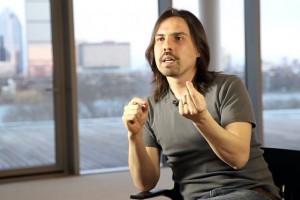Structure and Character of the Internet
Computer scientist David Clark on security issues, the idea behind information-centric networking, and the inf...
What makes the telephone system in the US so reliable? How are internet service provider companies addressing these issues? Senior Research Scientist at MITs Computer Science and Artificial Intelligence Laboratory, David Clark, talks on the ways to ensure internet resilience and reliability.
Internet technology is becoming the fundamental platform for all of communications today. It’s no longer something we use just for secondary activities, a little bit of web cruising. It’s what we use for everything. In the language of the governments, it’s become a critical infrastructure. So it’s really important to consider how it is that we can ensure it’s reliable, resilient, and available enough to serve in this universal role.
So you might say, why is the telephone system reliable or resilient? In fact, our current telephone system was engineered during the cold war. We were very concerned about nuclear attack. There are telephone switching centers in the US, which are five stories underground and have six feet thick concrete bunkers because they were supposed to be nuclear-hardened.
I think the situation about resilience is not dire if you look at what internet service providers have done today. They are investing in resilience, and in technology for rapid recovery after natural disasters. I think the important challenge for the research community is to say what methods, what tools can we give them for design and modelling such that they know that they have the capability that they thought they had.

Computer scientist David Clark on security issues, the idea behind information-centric networking, and the inf...

Professor of Romance Languages & Literature at the Harvard Graduate School of Design Jeffrey Schnapp on redesi...

Economist Cesar Hidalgo on the meritocratic system, rock star behavior, and market mechanisms